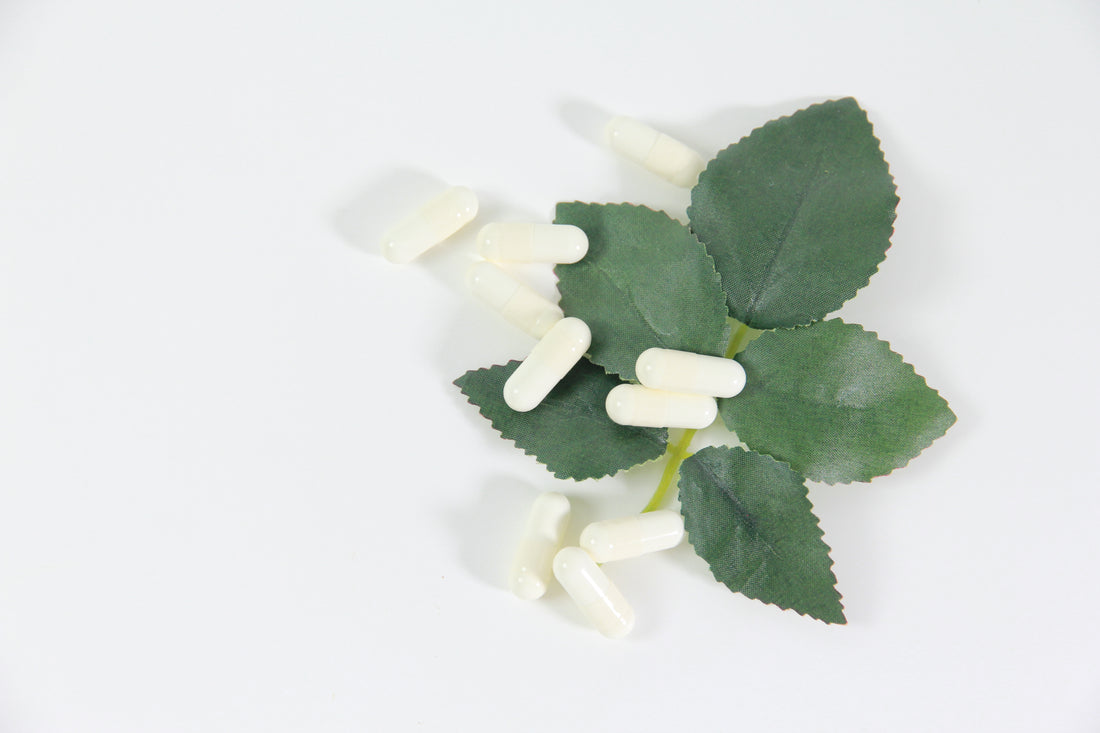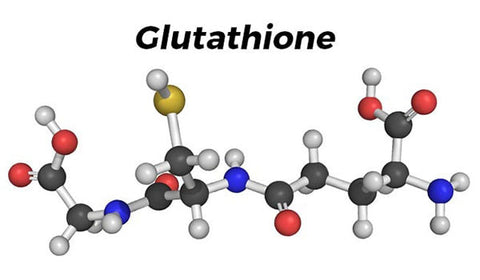
Glutathione Supplement for Immune System and Skin Health
Share
What is Glutathione?

5 Benefits of Glutathione
A Potent Antioxidant
Glutathione plays an important role in the biochemical defense system of human body and has many physiological functions. Its main physiological function is to remove the free radicals in the human body. As an important antioxidant in the body, it protects the sulfhydryl groups in many proteins and enzymes. Biochemical studies of the effects of aging on the antioxidant systems highlighted the existence of age-related changes in the GSH content of the nervous system. Aging is often associated with impairments in CNS function, resulting from loss of neurons and leading to diminished cognitive performance. Our defense against oxygen radicals relies on the enzymes of the glutathione/thioredoxin antioxidant system, which inactivate ROS and NOS, glutathione peroxidase detoxifies peroxides, including H2O2 and peroxides that are generated during the oxidation of membrane lipids.[1]
For Skin Health
Many free radicals produced by metabolism in the body will damage cell membranes, attack life macromolecules, and promote the aging of the body. GSH can remove free radicals and play a strong protective role. The latest research also shows that GSH can play an anti allergic role, prevent skin aging and pigmentation, reduce the formation of melanin, improve the skin's antioxidant capacity and make the skin shine.[2]
Improve Immune System
Research shows that active glutathione (GSH) primes white cells such as natural killer (NK) and T cells, your body’s front-line infection fighters. GSH-enhanced T cells are able to produce more infection-fighting substances, controlling both bacterial and viral infections.[3]
Athletic Performance
In a study of eight men receiving 1,000 milligrams of glutathione before exercise, the glutathione group performed better, felt less fatigued, and had lower blood lactic acid levels than the placebo controlled group.[4]
Detoxification
Clinically,glutathione plays a key role in detoxification, so it plays a significant role in purifying internal organs, such as repairing liver and kidney damage, eliminating heavy metals in the body, detoxifying acrylonitrile, fluoride, carbon monoxide, heavy metals, organic solvents and acetaminophen (acetaminophen), protecting red blood cell membrane, preventing hemolysis and reducing methemoglobin.
Care for Your Glutathione Levels in the Body
Diets to Increase Your Glutathione Levels
Consume Sulfur-Rich Foods
Increase Your Vitamin C Intake
Foods Rich in Glutathione
Glutathione Supplementation
Side Effects to Glutathione Supplementation
You may feel nausea, vomiting and headache. Always consult your healthcare provider before taking dietary supplements, but especially if you are pregnant or breastfeeding.
*These statements have not been evaluated by the FDA. This product is not intended to diagnose, treat, cure, or prevent any disease.
[1] Iskusnykh IY, Zakharova AA, Pathak D. Glutathione in Brain Disorders and Aging. Molecules. 2022 Jan 5;27(1):324.
[2] Sonthalia S, Jha AK, Lallas A, Jain G, Jakhar D. Glutathione for skin lightening: a regnant myth or evidence-based verity? Dermatol Pract Concept. 2018 Jan 31;8(1):15-21.
[3] Guerra C, Morris D, Sipin A, Kung S, Franklin M, Gray D, Tanzil M, Guilford F, Khasawneh FT, Venketaraman V. Glutathione and adaptive immune responses against Mycobacterium tuberculosis infection in healthy and HIV infected individuals. PLoS One. 2011;6(12):e28378.
[4] Aoi W, Ogaya Y, Takami M, Konishi T, Sauchi Y, Park EY, Wada S, Sato K, Higashi A. Glutathione supplementation suppresses muscle fatigue induced by prolonged exercise via improved aerobic metabolism. J Int Soc Sports Nutr. 2015 Feb 6;12:7.


